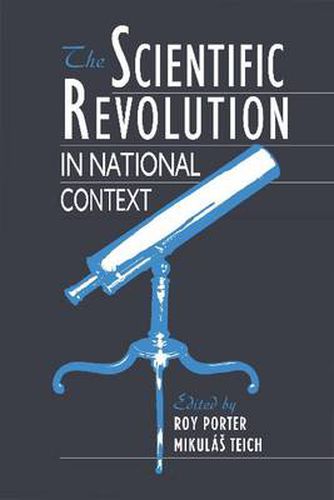Readings Newsletter
Become a Readings Member to make your shopping experience even easier.
Sign in or sign up for free!
You’re not far away from qualifying for FREE standard shipping within Australia
You’ve qualified for FREE standard shipping within Australia
The cart is loading…






The Scientific Revolution of the sixteenth and seventeenth centuries continues to command attention in historical debate. What was its nature? How did it develop? Controversy still rages about the extent to which it was essentially a revolution of the mind, or how far it must also be explained by wider considerations–social, economic, political and cultural. In this volume, leading scholars of early modern science argue the importance of specifically national contexts for understanding the transformation in natural philosophy between Copernicus and Newton. Distinct political, religious, cultural and linguistic formations shaped scientific interests and concerns differently in Italy, France, Britain, the Germanies, Spain, and so on, and explain different levels of scientific intensity. Questions of institutional development, and of the transmission of scientific ideas, are also addressed. The emphasis on national determinants makes this volume an entirely original contribution to the study of the scientific revolution.
$9.00 standard shipping within Australia
FREE standard shipping within Australia for orders over $100.00
Express & International shipping calculated at checkout
Stock availability can be subject to change without notice. We recommend calling the shop or contacting our online team to check availability of low stock items. Please see our Shopping Online page for more details.
The Scientific Revolution of the sixteenth and seventeenth centuries continues to command attention in historical debate. What was its nature? How did it develop? Controversy still rages about the extent to which it was essentially a revolution of the mind, or how far it must also be explained by wider considerations–social, economic, political and cultural. In this volume, leading scholars of early modern science argue the importance of specifically national contexts for understanding the transformation in natural philosophy between Copernicus and Newton. Distinct political, religious, cultural and linguistic formations shaped scientific interests and concerns differently in Italy, France, Britain, the Germanies, Spain, and so on, and explain different levels of scientific intensity. Questions of institutional development, and of the transmission of scientific ideas, are also addressed. The emphasis on national determinants makes this volume an entirely original contribution to the study of the scientific revolution.